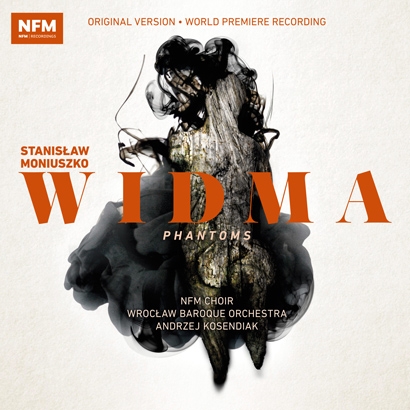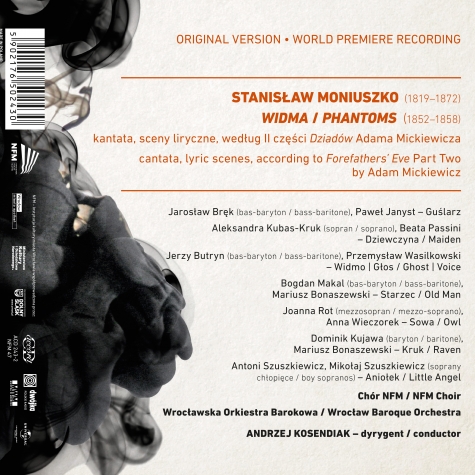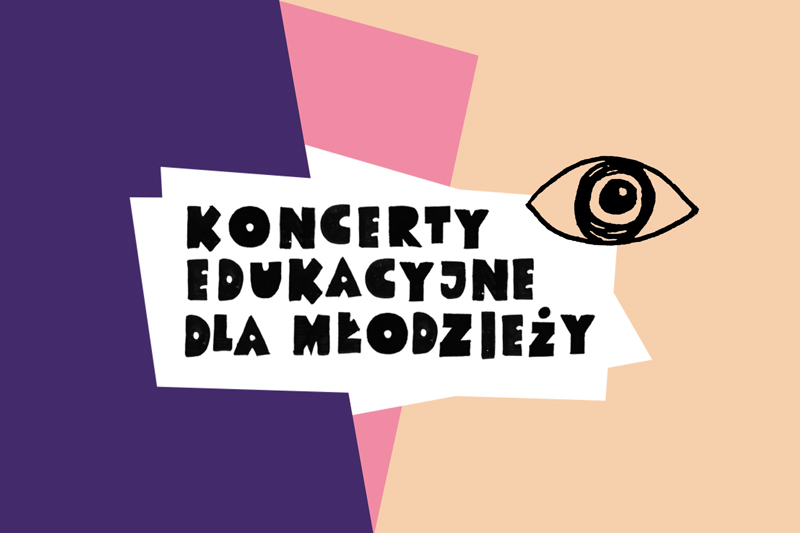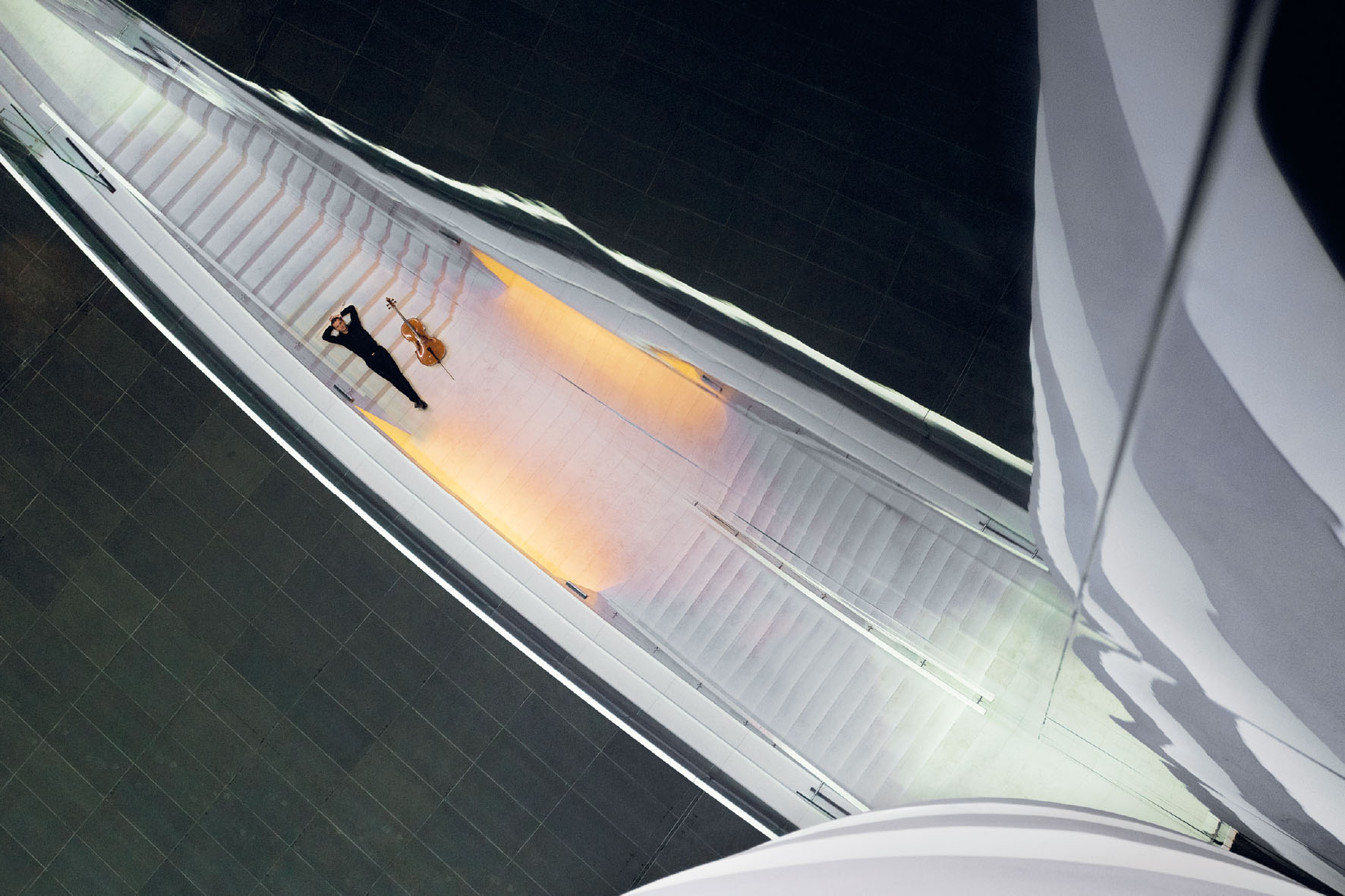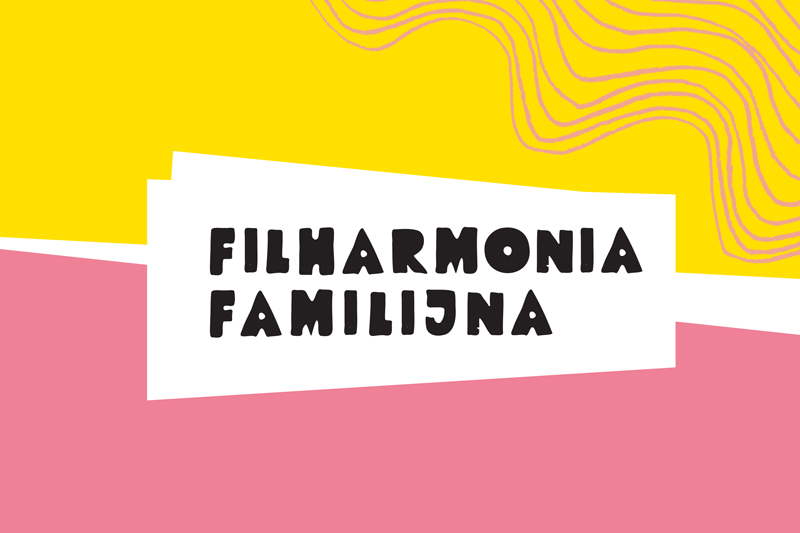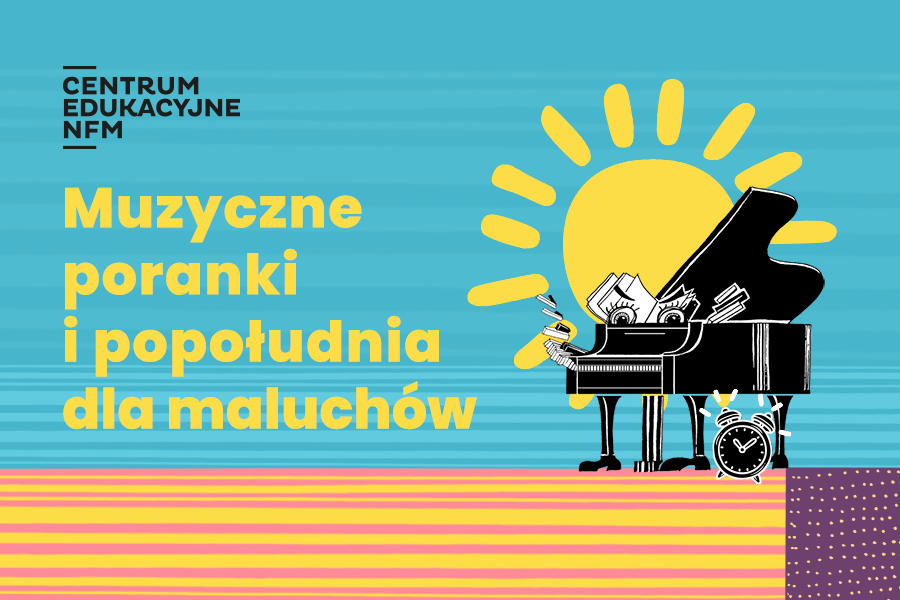Stanisław Moniuszko | Widma
The album Phantoms by Stanisław Moniuszko, based on the second part of Adam Mickiewicz’s Forefathers’ Eve, is the first ever recording of the original version, reconstructed on the basis of handwritten sources, with all later editorial changes reverted. The album, which is the world premiere of the recording, is a rarity on the music market. It also includes an essay by Grzegorz Zeila from the Institute of Art of the Polish Academy of Sciences, who specialises in the history and theory of 19th century music.
Album premiere: 2018
Publishers: National Forum of Music, CD Accord
Conductor: Andrzej Kosendiak
Performers: Wrocław Baroque Orchestra, NFM Choir
Today, Stanisław Moniuszko (1819–1872) is, for us, primarily the “father of Polish opera” and the author of Home Songbooks, published with a wide audience in mind. Meanwhile, he was also the creator of cantatas in which, like no other Polish composer, he was able to combine the dramatic element typical of opera with the lyricism and reflective mood typical of songs. His cantatas are extensive, multi-movement vocal-instrumental works, having certain features of both genres. Just like the “Lithuanian” cantatas from the turn of the 1940s and 1950s written to the texts of Józef Ignacy Kraszewski, or the “Petersburg” Madonna inspired by Petrarca’s Sonnets, Mickiewicz’s later cantatas, Phantoms and The Crimean Sonnets, have been recorded only a few times. As a result, they are scarcely known to Polish music lovers. […]
The creators of this recording had the ambition of restoring the score to its original version, as close as possible to the composer’s idea, which required cleaning the work of all subsequent corrections, “improvements” and editorial changes, which were first made shortly after the composer’s death by his good friend and professional colleague Adam Münchheimer (1830–1904). Władysław Żeleński, who was often critical of Moniuszko, did not refrain from the temptation to interfere with the work either. The reconstruction was undertaken by Maciej Prochaska [...].
The Wrocław initiative of gradually disclosing Moniuszko’s cantata works may give many music lovers a unique opportunity to make surprising discoveries. It is certainly difficult to resist the impression that finding successful musical adaptations of well‑known and lesser-known literary works by leading Polish writers and poets of the 19th century brings much greater satisfaction to historians and Polish scholars fascinated with native culture than to music critics. The latter, eternally dissatisfied with Moniuszko, cannot forgive him for not following Chopin’s path and creating universal masterpieces. It is puzzling that reproaches of this type are not made – although it would of course be possible – to any of the writers appreciated by Moniuszko: neither Fredro, nor our romantic poets, nor the previously mentioned Kraszewski. In their works, we are always attracted by what is local and familiar, something that helps us discover unknown truths about ourselves, about our common past and present.
Moniuszko certainly belongs to the same category of artists. To paraphrase the extremely insightful thought of Tadeusz Boy‑Żeleński, it can be said that the gross disparity between the splendor of the heritage that Moniuszko left us and the power of its radiation outside of its locality is one of many proofs of the “self‑centeredness” of our culture. Just like Fredro, Mickiewicz or Kraszewski, we have him for ourselves; and only for ourselves.
A fragment of the essay Moniuszkowskie „Widma”, sceny liryczne z „Dziadów” Adama Mickiewicza: od inspiracji do realizacji (Moniuszko’s “Phantoms”, lyrical scenes from Adam Mickiewicz’s Forefathers’ Eve from inspiration to making it come true) by Grzegorz Zieziula (Institute of Art of the Polish Academy of Sciences), included in the album booklet.
- Fryderyk 2019
